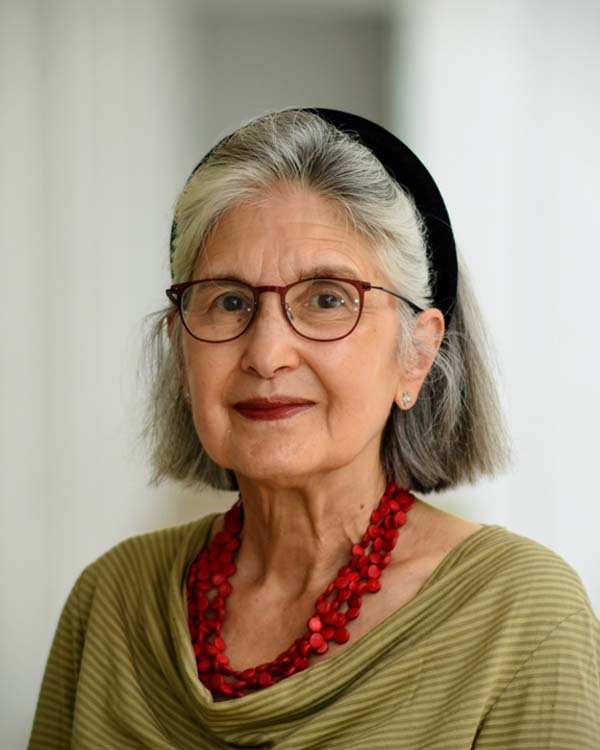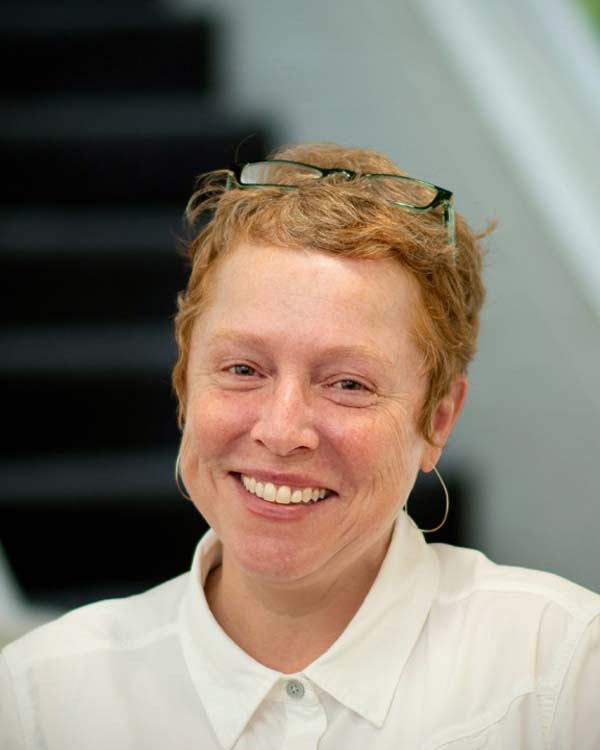In this issue we highlight the research of Fellows from the class of 2021–22 who are exploring science and technology across cultures and regional boundaries.

Howard Chiang
University of California, Davis

Lorraine Daston
University of Chicago and Max Planck Institute for the History of Science

Kelly S. McDonough
The University of Texas at Austin
Howard Chiang
Project: A Transcultural Revolution of the Unconscious: Psychoanalysis and Chinese Culture across the Pacific
Howard Chiang is associate professor of history at the University of California, Davis. He has written two monographs on China, forming a duology of queer Asian Pacific history through the lens of knowledge production. After Eunuchs: Science, Medicine, and the Transformation of Sex in Modern China analyzes the history of sex change in China from the demise of castration in the late Qing era to the emergence of transsexuality in Cold War Taiwan. Transtopia in the Sinophone Pacific proposes a new paradigm for doing transgender history in which geopolitics assumes central importance. Chiang’s current work centers on the historical and conceptual foundations of the human sciences, especially psychoanalysis, cultural psychiatry, and racial science.

What was the initial spark that led you to this project? What are the big questions that you are considering?
My interest in Freud and psychoanalysis goes back to my undergraduate years when I majored in psychology. Later, when searching for a topic for my PhD dissertation, I considered the history of psychoanalysis in China as a possibility. However, back then, I didn’t think the topic was feasible, not only because no historians of China have studied it (so there is a lack of historiographical interest), I also thought that there were no sources. A turn of events occurred when I came upon the papers of Bingham Dai (1899–1996), a native analyst whose intellectual biography anchors the narrative arc of the book I’m currently writing. Through the work of Dai and his interlocutors, I seek to understand why a foreign system of ideas such as psychoanalysis would gain a foothold in China. Moreover, I try to reposition Sinophone experts like Dai from the margin to the center of mental health history.
In the course of your research have you run across anything that genuinely surprised you? What can you tell us about it?
Working on this project has really opened my eyes. For instance, I used to think that Western psychiatry and Chinese culture have always been incompatible historically, but Dai’s work, which I characterize as shaping a kind of transcultural science that I call Confucian Freudianism, shows otherwise. The historical evolution of both Confucianism and Freudianism in the 1920s and 1930s, the moment when Dai’s interest in both intellectual traditions reached maturity, generated a condition for Dai to interweave these seemingly competing systems. In fact, this synthesis became the basis of a style of psychotherapy that he practiced in both Beijing and North Carolina. I also discovered that in addition to Dai, numerous other Asian psychiatrists became fascinated with the transcultural underpinnings of mental health. We can still see the legacy of this interest in psychiatric science today.
What new avenues of inquiry do you hope this research will prompt or make possible in your field?
First, I hope that other scholars in my field will consider the importance of mobility to history. Most of the actors that I investigate move across rigidly defined regional and disciplinary borders. That this is imbued with some significance on the epistemological level, that is, the criteria for the production of scientific truth, should alert us to the limitations of continuing to write histories framed around a single nation. Relatedly, the fields of Asian studies and Asian American studies have developed mostly in parallel. My project joins the effort of scholars in Sinophone studies to bridge this disciplinary gap, and I hope this is one area that can be deepened in the future. Likewise, my project explores the history of psychiatry through the lens of comparative racialization, so, hopefully, it will stimulate new ways of thinking about race across fields as diverse as Asian studies, biography, and the history of science and medicine.
Lorraine Daston
Project: Science Goes Global
Lorraine Daston is director at the Max Planck Institute for the History of Science, Berlin, visiting professor in the Committee on Social Thought at the University of Chicago, and permanent fellow of the Wissenschaftskolleg zu Berlin. Her work spans a broad range of topics in the early modern and modern history of science, including probability and statistics, wonders and the order of nature, scientific images, objectivity and other epistemic virtues, quantification, observation, algorithms, and the moral authority of nature. Her publications include Classical Probability in the Enlightenment (1988, coauthored with Peter Galison), Objectivity (2007, coauthored with Paul Erikson et al.), How Reason Almost Lost Its Mind: The Strange Career of Cold War Rationality (2013), Against Nature (2019), and Rules: A Short History of What We Live By (in press).

What was the initial spark that led you to this project? What are the big questions that you are considering?
I’ve always been interested in the ideal and reality of intellectual communities, from ancient schools of philosophy to the modern university. But the events of the past few years sharpened the focus on a different kind of uncommunal community, one which has no fixed location or formal membership but which is nonetheless highly effective. Faced with two crises of planetary proportions, the COVID-19 pandemic and climate change, only the scientific community—not the United Nations, not the G8, or any other international body—has shown itself capable of international governance. I want to understand how that came about.
In the course of your research have you run across anything that genuinely surprised you? What can you tell us about it?
All historians expect to find a gap between the published record and the documents that survive in archives: that’s why we are all baptized in the dust of the archives as graduate students. But I’ve never encountered such a chasm between public and private as I discovered in the records of the first successful international scientific collaborations in the late nineteenth century. The machinations and deliberations leading up to the early international congresses that brought together astronomers, statisticians, botanists, meteorologists, and other scientists more resembled preparations for diplomatic congresses than the professional meetings we know today. The scientists imagined these early collaborations as treaties—but as treaties enforced by bonds of personal loyalty and honor than by governments and armies. And in the end, these collaborations proved more lasting than any treaty among nations.
What new avenues of inquiry do you hope this research will prompt or make possible in your field?
The scientific community as it was constituted in the long twentieth century is now under strain: the peer review system is collapsing under the sheer numbers of researchers now active and digitalization is transforming scientific communication. I hope that my study of the origins of the scientific community—above all, the improbable fact that it worked—might provide some clues as to how it can be reinvented for the twenty-first century.
Kelly S. McDonough
Project: Indigenous Science and Technologies: Nahuas and the World Around Them
Kelly S. McDonough is associate professor in the Department of Spanish & Portuguese, Program in Native American and Indigenous Studies at The University of Texas at Austin, as well as coeditor of the award-winning Native American and Indigenous Studies journal. In her current book project, Indigenous Science and Technologies: Nahuas and the World Around Them, McDonough places Nahua peoples of colonial and contemporary Mexico squarely within the realm of science and technologies. Drawing from critical Indigenous studies, ethnohistory, literary and cultural studies, and anthropology, she combines archival research and ethnography with discourse analysis of alphabetic, visual, and sonic texts in Nahuatl, Spanish, and Latin.

What was the initial spark that led you to this project? What are the big questions that you are considering?
I actually began graduate school with the intention of studying science and technology in Mexican literature but ended up pivoting to Nahua intellectual history. So, in a sense, this project is the product of a slow burn rather than a spark. I have been inspired by Dakota scholar Phil Deloria’s book Indians in Unexpected Places. He asks us to consider the kinds of dominant-culture expectations placed on Indigenous peoples. In my first book, I asked why Nahuas are not considered (or expected to be) intellectuals or writers. My current project is an extension of this question, now asking why it is believed that Nahuas do not “have” or “do” science and technology. What I show is that Nahua science and technology are not anomalies; instead, we have been “blinded” by ideological expectations.
In the course of your research have you run across anything that genuinely surprised you? What can you tell us about it?
In my project, I am linking sixteenth-century case studies to the present. It has been fascinating to see continuities over five hundred years in terms of theories and practices. For example, Nahua ways of understanding and explaining the world continue to be embodied, relational, predictive, and didactic. At the same time, evidence of creative innovations has shown a people committed to solving problems from within their own cultural/contextual paradigm, but certainly willing to adopt and adapt ideas from other cultures. It has also been fun to encounter instances where Nahuas and Spaniards vehemently disagreed and gratifying to tease out Indigenous ideas that have been co-opted by Europeans who later presented them as their own.
What new avenues of inquiry do you hope this research will prompt or make possible in your field?
Hopefully, my research will shift how we think about and teach science and technology studies in Mexico. That is, that we actually include Indigenous people as contributors to these histories. More than anything, I hope it is doing the work of continuing to chip away at the erroneous, deeply colonial representation of the one-dimensional “simple” Native, contrasted with a “superior” dominant culture. It is a disservice to Indigenous people to disavow their brilliance and creativity, but it is also a disservice to the planet. We have to come up with new solutions to shared problems, and Indigenous people have a lot to offer in this regard.
